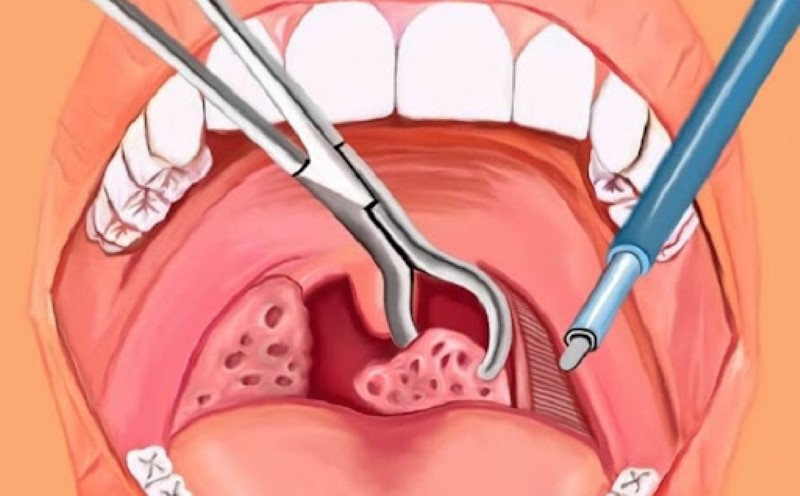Tonsillitis is a prevalent condition affecting the throat, particularly the tonsils. It can occur at any age, but certain age groups are more prone to this condition. Understanding the common age groups affected by tonsillitis can help in recognizing symptoms early and seeking appropriate treatment.
1. Symptoms of Tonsillitis
Tonsillitis presents with various symptoms, which can vary depending on the severity and underlying cause. Some of the most common symptoms include:
– Dry and itchy throat: One of the initial signs of tonsillitis is a dry, scratchy feeling in the throat.
– Swollen tonsils: The tonsils may become enlarged, red, and visible from the outside when inflamed.
– Coughing: Irritation from swollen tonsils often triggers coughing, which may also be due to mucus buildup in the throat.
– Bad breath: Accumulation of bacteria or pus in the inflamed tonsils can lead to foul-smelling breath.
– Rhinitis: In some cases, tonsillitis may be accompanied by rhinitis, leading to symptoms like a stuffy nose, runny nose, or discomfort around the nasal area.
In more severe cases, tonsillitis can cause difficulty swallowing, fever, and other serious complications. These symptoms may occur simultaneously or individually, but they all contribute to a decline in the patient’s daily quality of life.

Individuals with tonsillitis will experience pain, a dry throat, and discomfort.
2. Common Age Groups Affected by Tonsillitis
2.1 Children: The Most Commonly Affected Group
Tonsillitis can affect people of all ages, but it is particularly common in certain age groups. Among these, children are the most frequently affected. Specifically, common age groups affected by tonsillitis include children between the ages of 5 and 15. This age group is more vulnerable due to their developing immune systems and frequent exposure to infectious agents in environments like schools or playgrounds.
2.2 Reasons Why Children Are Prone to Tonsillitis
Several factors contribute to why children are among the common age groups affected by tonsillitis:
– Bacterial or viral infections: Infections such as those caused by Streptococcus pyogenes (responsible for bacterial tonsillitis) and viruses like Epstein-Barr are common triggers of tonsillitis in children.
– Immature immune system: Children’s immune systems are still developing, making them more susceptible to infections that can lead to tonsillitis.
– Close contact in social settings: Children often interact closely with one another in school or play environments, which increases the likelihood of spreading bacteria and viruses.
– Exposure to secondhand smoke: Children exposed to secondhand smoke are at higher risk of developing tonsillitis due to irritation and inflammation of the throat and tonsils.
– Dietary habits and hygiene: Cold beverages, ice cream, and poor oral hygiene can also make children more susceptible to tonsillitis.
3. Complications of Tonsillitis
If left untreated, tonsillitis can lead to several complications, including:
– Scarlet fever: Characterized by high fever, widespread red rash, and swollen neck glands, this condition can arise from untreated bacterial tonsillitis.
– Rheumatic fever: This inflammatory disease can affect the heart, joints, and nervous system, typically as a consequence of untreated streptococcal infections.
– Acute glomerulonephritis: This serious kidney condition may develop if bacteria from the inflamed tonsils spread to the kidneys, leading to symptoms such as back pain, fatigue, and blood in the urine.
– Infectious arthritis: Bacteria from the tonsils can spread to the joints, causing painful inflammation and restricted movement.
– Ear infections: Inflamed tonsils can cause infections in the middle ear, leading to ear pain and discomfort.
– Sleep apnea: In children, swollen tonsils can obstruct the airway during sleep, increasing the risk of sleep apnea.

If left untreated, tonsillitis can lead to serious complications.
4. Important Post-Treatment Care for Tonsillitis
After treatment, patients should follow these guidelines to ensure proper recovery:
– Maintain proper oral hygiene: Keeping the mouth clean is crucial in preventing reinfection. Regular brushing and gargling with salt water or antiseptic solutions are recommended.
– Rest adequately: Resting allows the body to heal and recover, reducing the likelihood of complications.
– Adopt a suitable diet: A balanced, nutritious diet that avoids irritating foods can help soothe the throat and aid in recovery.
– Keep the throat warm: Keeping the throat warm, especially in colder weather, can prevent further irritation or infection.
– Drink warm fluids: Warm fluids help ease throat discomfort and promote healing.
– Seek medical advice if symptoms persist: If symptoms return or new ones appear, it’s essential to consult a doctor for further evaluation.

Depending on the specific condition, the patient may require tonsillectomy surgery.
In conclusion, while tonsillitis can affect individuals of all ages, understanding the common age groups affected by tonsillitis can lead to better prevention and treatment strategies. By recognizing the symptoms early and adhering to proper post-treatment care, patients can avoid complications and maintain better overall health.








